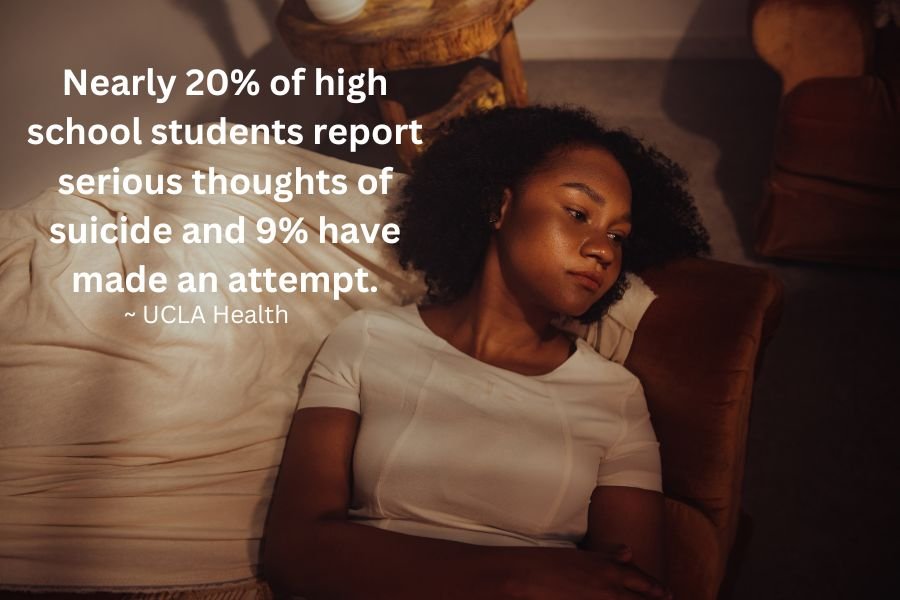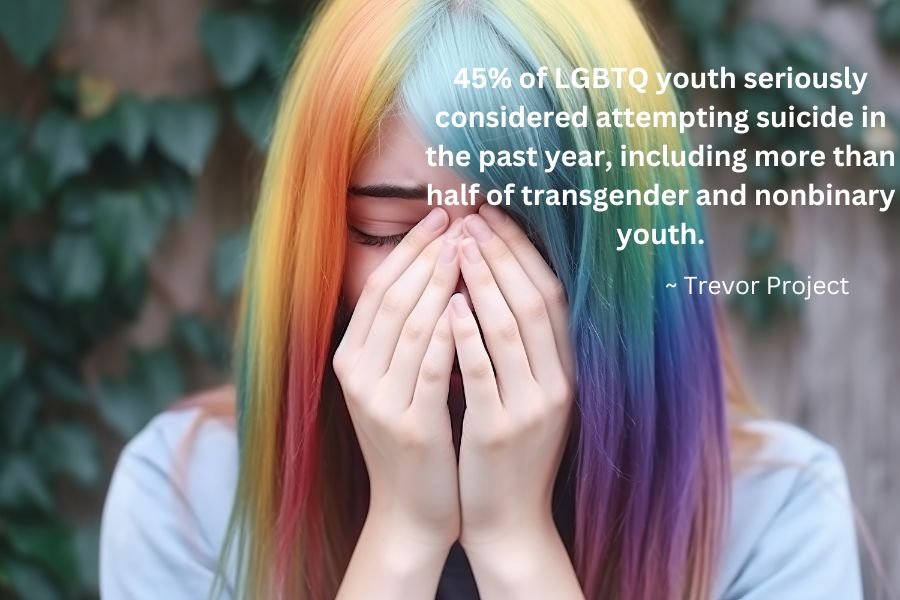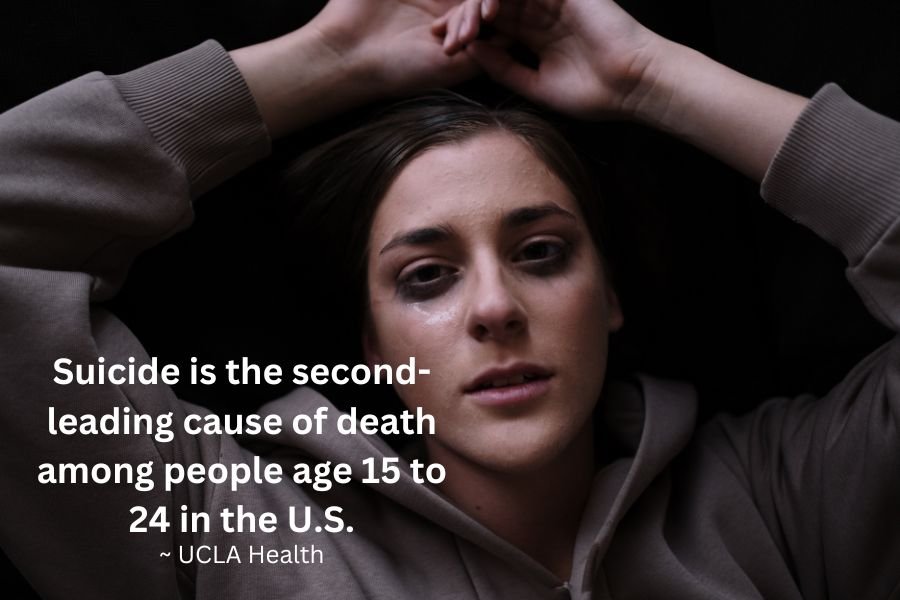Editor’s Note: This story discusses suicide. If you are having thoughts about taking your own life, or know of anyone who is in need of help, the 988 Suicide & Crisis Lifeline is a United States-based suicide prevention network of over 200+ crisis centers that provides 24/7 service via a toll-free hotline with the number 9-8-8. It is available to anyone in suicidal crisis or emotional distress.
A teen expressing suicidal thoughts can be terrifying as a parent. There’s not really a handbook for it and sometimes you’re not even the first to know. Teens are at a unique stage in their lives, stuck between adulthood and childhood. They’re trying to figure out their place in the world while navigating massive hormonal changes, more challenging work at school, social group pressures, and adults constantly asking what their future plans are.
When you add in the extra layer of sexual orientation outside of heterosexual norms, teens can feel immense pressure they’re not fully equipped to handle on their own. But because of their stage of development, secrecy is fairly common, even if you have a close relationship with your teens.
So this can sometimes mean that by the time they’re coming to their parent with a problem, they’ve exhausted all of the resources they have. But there are things parents can do in an attempt to help their teens prepare for suicidal thoughts if they pop up.
Everything a parent can do essentially revolves around having open, honest conversations about suicidal thoughts. Parents often try to steer their kids clear of upsetting information or anything that may seem like it’s encouraging an undesirable behavior. But kids are smart and we have to trust them to make the choices right for them based off of the information they have.
Normalizing suicidal ideation as something that some people have can help kids feel comfortable to open up with their parents when they experience them. Passive suicidal ideation is something that many people experience, which can be things like hoping you don’t wake up in the morning or wanting a tragic accident to occur. But they can also look like someone saying they don’t want to be here anymore or that life would be easier without them.
Parents should have a firm handle on when suicidal thoughts are passive and when they’re active so they can impart that knowledge on their children. Passive suicidal thoughts doesn’t mean hospitalization, in most cases it means the person would benefit from therapy as there is likely some underlying mental health condition.

Active suicidal ideation is when a plan is in place. This doesn’t mean it’s months out. A plan for suicide can come together quickly and impulsively, especially if there’s a inciting event like failing an important test or someone threatening to send a teen’s inappropriate pictures to everyone on Snapchat. Sextortion has claimed the lives of several teenage boys over the past few years, many of them popular, student athletes with good grades and a strong friend group.
Talking about suicidal thoughts and what to do in the event of having them can help save their lives. Parents can also reassure their children that there is nothing they can do that would make you stop loving them. Bring sexting out on the table to let them know people make mistakes and that you’ll always be a safe person to come to if someone is threatening to expose inappropriate pictures. No judgement.
Does that mean you need to agree with them sending inappropriate photos? No. But when they’re coming to you in a bind, judgement needs to sit in the backseat until your child is safe. The lesson is already learned and nothing you do or say will drive it home more.
Outside of talking about it openly, discussing the different types of ideation and reassurance that you’re a safe person if something big happens-parents should make sure their kids store crisis numbers in their phones. Because they’re teens, they don’t always come to parents first, so parents making sure kids have crisis numbers stored is that extra layer of knowledge that it’s okay to seek help.

Storing multiple options can be beneficial. 988 is great for crisis phone calls, 741741 is a crisis text line, 1-866-488-7386 is a crisis line for LGBTQ youth and 678-678 is their text option. Even if you don’t think your child is a member of the LGBTQ community, it’s still beneficial for them to have access to this number whether it benefits them directly one day or if they pass it along to a friend.
If there’s ever a time when your child comes to you with an active plan for suicide, you can take them to the nearest emergency department or crisis center. Many psychiatric hospitals will assess people without them being assessed at the emergency department first if they have a bed available, which you can find out by calling ahead. If the crisis is acute and it’s not safe to transport your child, you can call 988 and they will work with local emergency services to pick them up.

Talking to teens about suicide isn’t a fun conversation but it has to be had. Suicide is the second leading cause of death among people 10-24 years olds, having the conversation and checking in frequently is imperative to ensure teens have the knowledge to keep them earth side as long as possible.
This article was written by Jacalyn Wetzel, Licensed Clinical Social Worker and practicing therapist.










































